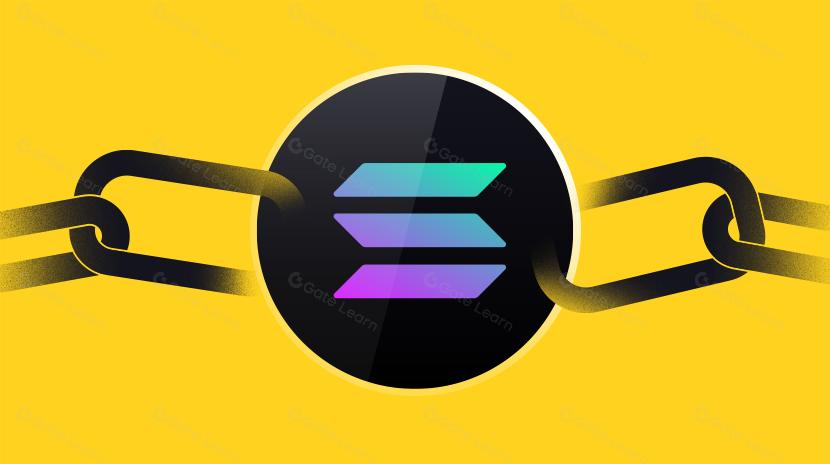Decentralized

What Is Decentralization?
Decentralization refers to a system design where authority and decision-making are distributed across multiple independent entities, rather than being concentrated in a single organization. In a decentralized structure, no single party can unilaterally change the rules or halt the service. Within blockchain systems, transactions are recorded and verified by a global network of nodes. The system operates based on transparent, algorithmic rules—without the need for endorsement from any central company.
Why Does Decentralization Matter?
Decentralization is crucial for security, fairness, and censorship resistance.
When power is centralized, issues like downtime, abuse, or censorship can impact all users at once. Distributing authority across multiple points means a single failure won’t bring down the entire system, and transparent rules reduce opportunities for malicious behavior. For users, decentralization provides borderless access, open innovation interfaces, and the possibility of self-custody over digital assets.
Compared to centralized systems, decentralization resembles “public infrastructure”—anyone can use or contribute to it, but users are responsible for following the rules and managing their own risks. Understanding decentralization helps you choose the right products: when to use a non-custodial wallet, when to rely on exchange custody, and how to strike a balance between the two.
How Does Decentralization Work?
Decentralization functions through collaboration among multiple nodes.
Nodes are computers participating in the network, distributed globally. Each node stores an identical copy of the ledger and processes transactions according to predefined procedures. This ensures the system doesn’t depend on any single machine or organization.
The consensus mechanism defines how all participants agree on the state of the blockchain—similar to a voting process. Different networks use different consensus methods to determine which records are accepted, preventing double-spending, tampering, or conflicts.
Incentive mechanisms make honest participation rewarding. Nodes that package transactions correctly and maintain network stability receive token rewards or a share of transaction fees; malicious actors risk penalties or exclusion from the network.
Cryptography secures data and verifies identities. Transactions are signed with private keys, so only key holders can initiate transfers. Public verification allows anyone to check transaction validity without needing to trust intermediaries.
How Does Decentralization Manifest in Crypto?
Decentralization is most evident in network operation, asset management, and governance.
At the network level, Bitcoin and Ethereum are maintained by a global community of nodes. Anyone can run a node to participate in validation or query data. This setup makes records difficult to alter and strengthens resistance against censorship.
For asset management, non-custodial wallets enable users to control their own private keys—essentially holding their own “asset keys.” Combined with decentralized exchanges (DEXs), users can swap assets directly from their wallets without entrusting funds to a platform. In AMM-based DEXs, prices are set by liquidity pools and algorithms—no manual approval needed.
In community governance, DAOs are organizations where token holders or contributors vote on proposals. Proposal submission, voting, and execution are all publicly auditable, with transparent treasury management—minimizing “black box” decisions.
On exchange platforms, many offer access to decentralized protocols. For example, Gate allows users to select on-chain products in its “Earn” section or provide liquidity for trading pairs in “Liquidity Mining,” earning fee shares and rewards based on trading activity. This lets beginners benefit from decentralized protocols’ returns and risks without directly interacting with complex smart contracts.
To experience a DEX yourself:
- Install a wallet and back up your seed phrase securely offline.
- Buy a small amount of crypto on an exchange and transfer it to your wallet—choose a network with lower fees.
- Connect your wallet to a DEX website; only grant permissions as needed.
- Start with small swaps; check slippage and fees before increasing amounts.
- Regularly review your trade history and exposure—never keep all assets in one protocol.
Common Misconceptions About Decentralization
Misunderstandings often stem from over-idealizing decentralization.
- Misconception 1: Decentralization means absolute security. In reality, it reduces single points of failure but doesn’t eliminate risks like smart contract bugs, phishing attacks, or key leaks.
- Tip: Diversify assets, use hardware wallets, avoid clicking unknown links.
- Misconception 2: Decentralization is cost-free. Users still bear learning curves, operational costs, and on-chain gas fees.
- Tip: Start small; choose networks or times with lower fees.
- Misconception 3: Every layer must be fully decentralized for authenticity. In practice, hybrid stacks are common—on-chain settlement paired with off-chain interfaces or centralized gateways connecting to decentralized protocols. The key is understanding trade-offs and risks at each layer, not “purity worship.”
- Misconception 4: Community voting is always efficient. While voting increases transparency, it can also slow decisions.
- Tip: Clearly define delegation boundaries—let small groups act quickly within their scope, reserving major decisions for on-chain voting.
Recent Trends and Notable Data in Decentralization
Decentralization metrics have strengthened this year.
Public industry data sources (such as DefiLlama, L2Beat, CoinGecko, and major exchange data pages) indicate several positive trends:
- As of Q3 2025, DeFi total value locked (TVL)—the value of assets locked in protocols—remains in the $100 billion range, marking a clear rebound from 2024. Factors include improved market conditions, more yield strategies, and easier onboarding via exchanges.
- Over the past six months, daily transaction volume and active addresses on layer 2 networks (L2s—scaling solutions built atop main blockchains) have increased steadily. Multiple parallel networks make distributed processing more common; lower fees encourage small-scale on-chain transactions.
- Bitcoin’s network hash rate and active node count remain at historic highs with broader global distribution—meaning stronger resistance to attacks and less susceptibility to single-point control.
- On networks like Ethereum, staking participation remains high this year. The number of distributed validators is growing while single-entity dominance declines—a key decentralization metric is the “concentration among top staking providers.”
- In DAO governance, both proposal numbers and voter participation on public platforms have stayed active over the past year. More projects are making treasury flows publicly viewable for greater transparency—even as efficiency challenges persist, tools and processes are improving.
How to track these trends yourself:
- Check TVL and protocol distribution: Visit DefiLlama, view “Chains/Protocols” for asset concentration and changes.
- Monitor L2 activity: Use L2Beat for transaction volume, fees, and security model breakdowns.
- Review hash rate and nodes: Check blockchain explorers or data sites for “Hashrate/Nodes” pages—focus on geographic distribution and growth curves.
- On Gate, examine on-chain metrics for relevant assets and entry points for yield products; choose participation strategies that match your risk tolerance.
- Pay attention to report timestamps—compare quarterly/yearly intervals (e.g., “this year,” “past six months,” “Q3 2025”) against full-year 2024 data to avoid misjudging current trends with outdated information.
Key Terms
- Decentralization: A system where control does not rely on a single central entity but is maintained and validated by multiple independent participants.
- Smart Contract: Program code that executes automatically on blockchain networks—enabling transactions and agreements without intermediaries.
- Consensus Mechanism: The protocol by which network nodes agree on the blockchain’s state, ensuring consistency among all participants.
- Gas Fees: The cost of computational resources required to execute blockchain operations—used to prevent network abuse.
- Blockchain: A cryptographically linked sequence of data blocks recording all transaction history—designed to be immutable.
FAQ
Decentralization sounds complex—is it used in real life?
Yes. Decentralization has practical applications in cryptocurrency, file storage, domain management, and more. For example, when trading on Gate, you can self-custody your assets instead of leaving them with an exchange—an example of decentralization that gives users greater autonomy and security.
Is using decentralized applications difficult?
Early decentralized apps were complicated to use but have improved significantly. On platforms like Gate, decentralized services now offer user experiences comparable to centralized apps. The key is choosing user-friendly tools—and managing your private keys carefully to prevent asset loss.
Does decentralization mean no one manages anything?
No. Decentralization disperses authority from any single manager but doesn’t mean zero oversight. Blockchain networks are collectively maintained by nodes; smart contracts automate protocols. Power is distributed—but order is maintained via consensus mechanisms and code.
How can regular users start with decentralized wallets or apps?
Start by creating a decentralized wallet (e.g., MetaMask browser extension). Then try decentralized trading features on platforms like Gate or explore DeFi lending protocols. Begin with small amounts to get comfortable with the process and minimize errors due to unfamiliarity.
Are decentralization and privacy protection the same thing?
Not exactly—they’re related but distinct concepts. Decentralization distributes control; privacy protection focuses on data confidentiality. Blockchains are decentralized yet typically transparent; only privacy coins combine both features fully. The two traits can be combined but are independent.
Further Reading
Related Articles

The Future of Cross-Chain Bridges: Full-Chain Interoperability Becomes Inevitable, Liquidity Bridges Will Decline

Solana Need L2s And Appchains?
